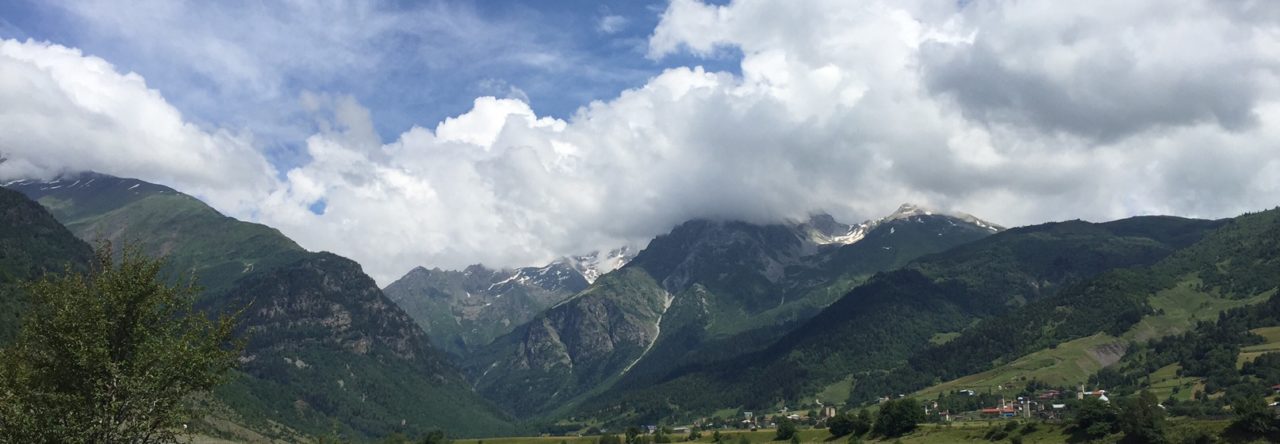We only spent five days in Armenia, for several reasons: (i) Georgia was so great that we ate into a significant amount of time allocated to Armenia; (ii) the main attraction of Armenia is its monasteries, and we were fearful of suffering monastery fatigue – which was already threatening in Georgia; (iii) any other activity which involved spending much time outside was off the cards: it was 40 degrees C every day; (iv) it’s very difficult to get around Armenia as an independent traveller unless you have your own car; (v) Armenian driving is euphemistically described by Lonely Planet as “erratic”; (vi) both our arrival and departure dates were dictated by the infrequent transport from Tbilisi and to Astana. However we saw a lot in those five days and really enjoyed our time in this country.
We took a small tour from Tbilisi (the capital of Georgia) to Yerevan (the capital of Armenia) so that we could see the sights in northern Armenia which we would inevitably be going past if we took public transport. A small hostel chain, Envoy, ran a tour from their Yerevan hostel to their Tbilisi hostel every Friday and then did the return trip every Saturday (somewhat surprisingly the third hostel in the chain is in Phnom Penh…). So on Saturday 5 August 2017 we jumped in a minibus with our excellent guide, a young Armenian woman who spoke great English having spent an academic year in Colorado as a teenager. She was a recent university graduate who knew a sufficient amount about her subject, was keen to share it with us and even keener to enjoy the company of our international group. After a dearth of Americans (which Chris normally likes as he then feels special) we found ourselves in the company of four, including two Peace Corps volunteers who were taking a short holiday in Armenia before returning to teach English in Georgia. Most of our conversation was either with these two guys or our entertaining guide.
After only an hour or so we were at the border. This was my first ever controlled land border crossing and it was pretty straightforward, although there was inevitably a decent amount of queue jumping, including the border guard allowing some people to come to the front.



